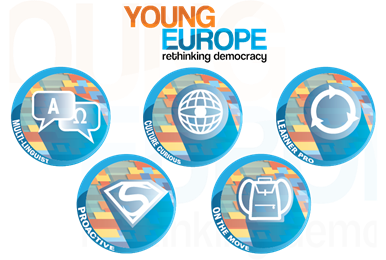 Tools and Practices about recognition of youth work/ non-formal learning
Tools and Practices about recognition of youth work/ non-formal learning
Digital recognition of skills and achievements
Short description:
Badges are not a new idea. Scouts have been using badges to recognize the various skills and achievements of their members for years. Players of video games unlock various trophies by completing game missions. Web developers use badges to encourage the wanted behaviours of internet users. Similar ideas lie behind the use of digital badges for life-long learning. They should help to recognize the knowledge, skills, attitudes and achievements of learners in various learning contexts.
Badges are digital micro-credentials that are aligned to Mozilla’s Open Badges standard. Any badge has a visual image containing the meta-data – information about the learning activity, criteria, achievements, evidence, and other relevant information to back up the recognition process with digital data.
Open Badges can be issued by organizations through various types of assessment, both online and offline, including self-assessment and automatic assessment activities. Once claimed, the Open Badge becomes the property of the learner and collected in the Badge Wallet app. Learners can decide to share them online via social networks, personal websites or to add them to online resumes.
The badges are created and managed at the Badgecraft online platform.
For more information:
https://www.badgecraft.eu/
https://www.badgecraft.eu/en/use-cases
https://www.youtube.com/watch?v=HgLLq7ybDtc&feature=emb_logo
https://www.badgewallet.eu/en/
https://pjp-eu.coe.int/en/web/coyote-magazine/explaining-open-badges-with-nerijus-kriauciunas
Contact details: [email protected]

